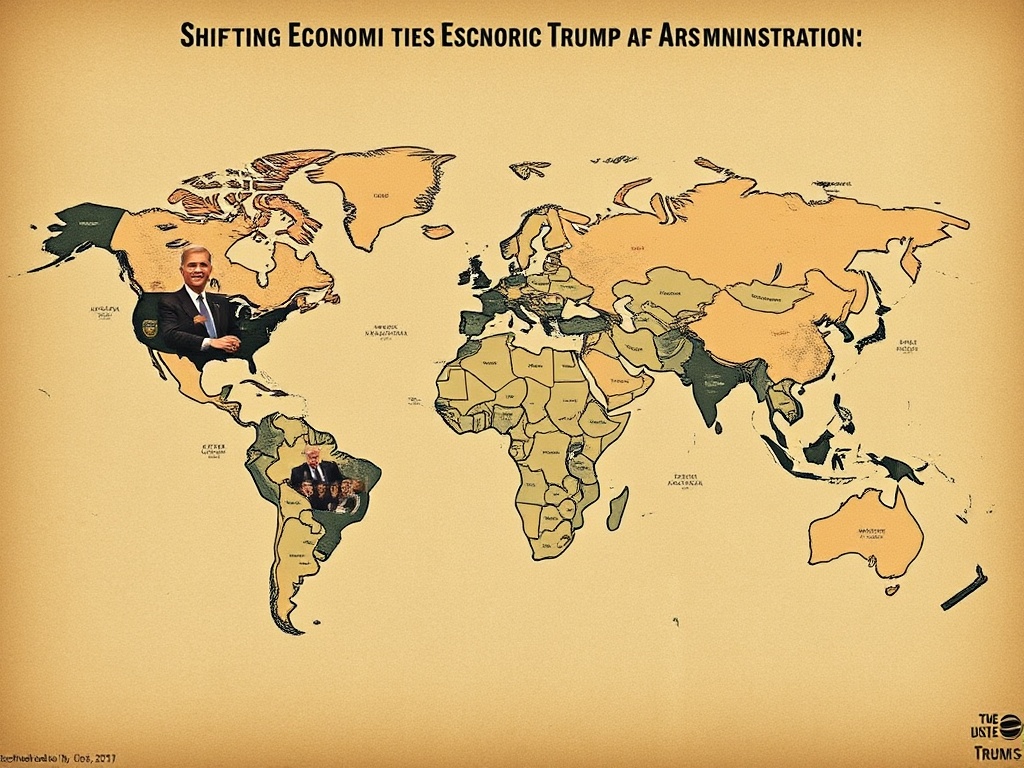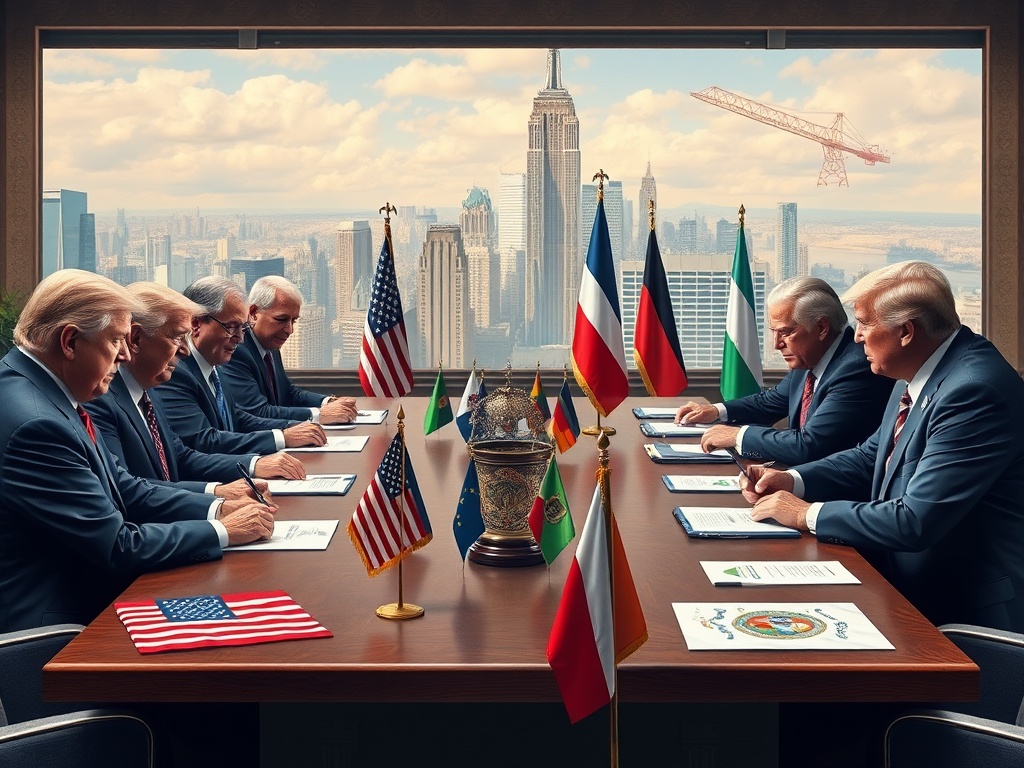The Shift in American Foreign Policy under Trump

As each day passes, the transactional worldview of President Donald Trump becomes increasingly evident. In the ongoing tensions between Russia and Ukraine, as well as in various other aspects of his foreign policy, the focus appears to be primarily on financial interests.
The nations of Europe have been taken aback by recent developments. Just a week ago, the idea of a rift within the transatlantic alliance, which has maintained peace in Europe since 1945, seemed unimaginable. This alliance had recently united in a shared goal: defending Ukrainian independence and sovereignty against Russian aggression.
Now, however, the United States seems to position itself as a rival to the United Kingdom and its European partners. Trump’s casual labeling of President Volodymyr Zelensky as a “dictator” serves as a troubling sign that he is intent on skewing peace negotiations in favor of Moscow. The Kremlin’s ambitions might extend beyond simply seizing pieces of Ukrainian territory, as Trump appears inclined to reward President Vladimir Putin with significant concessions. This includes not only territorial gains but also a rejuvenated Russian military that could threaten neighboring countries within the next 12 to 18 months.
In a significant diplomatic overture, Trump has proposed reinstating Putin’s status in the G7, effectively reversing the decision made nearly a decade ago when Russia was expelled due to its annexation of Crimea following the initial Ukraine invasion in 2014. Recently, U.S. officials expressed their discontent over labeling Russia as the aggressor in a G7 statement, which is set to be released to mark the third anniversary of Moscow’s invasion of Ukraine. An official disclosed to the Financial Times, “We are adamant that there must be a distinction made between Russia and Ukraine… the Americans are blocking that language.”
The inclusion of Russia in a group that purports to represent the world’s most advanced economies has always been contentious. This debate began back in 1998 when world leaders, including then-Prime Minister Tony Blair, decided that excluding Russia would hinder progress on international issues, despite the fact that the name “Putin” was still unfamiliar to many at the table.
Fast forward to today, and Trump’s desire to welcome Putin back into the fold is a striking concession to a leader who has long sought global acceptance, even as he undermines international norms, suppresses free expression, and is accused of heinous crimes. Trump recently remarked, “I think it was a mistake to throw [Russia] out. I think Putin would love to be back… If they were there, I don’t think you would have had the problem that you have right now.”
However, America’s G7 partners seem resolute against such a move. Canadian Foreign Minister Mélanie Joly stated unequivocally that “there is no way this will happen.” Even Canadian Conservative Party leader Pierre Poilievre has echoed this sentiment, asserting that “Russia’s exclusion from the G7 is every bit as justifiable today.” Interestingly, Russian officials have downplayed their interest in G7 membership, labeling it an “outdated structure”, while directing their energies towards solidifying alliances with BRICS—an emerging coalition comprising Brazil, Russia, India, China, and South Africa that aims to challenge the dominance of the U.S. dollar.
Nevertheless, Trump appears intent on exploring both geopolitical and economic partnerships with Russia. After a meeting with Kremlin officials in Riyadh, the U.S. Secretary of State emphasized the “incredible opportunities that exist to partner with Russia on issues of common interest, and frankly, economically on issues that hopefully will be good for the world and will also improve our relations in the long term.”
This push toward economic collaboration raises alarm among many observers. One former senior U.S. official with significant experience in dealings with Moscow stated, “It really worries me. God help us if we discuss doing business with Russia.” The fear is that such economic engagement could only serve to embolden Putin further.
In Ukraine, Trump’s economic motivations are similarly apparent. As UK Prime Minister Sir Keir Starmer prepares for a visit to Washington—the first by a European leader since the inauguration—Trump’s inner circle has made clear their animosity toward Zelensky. National Security Adviser Mike Waltz indicated that Trump’s discontent stems from a belief that Ukraine has “ripped Washington off.” Waltz claimed that the U.S. taxpayer deserves to recoup much of their investment in Ukraine, highlighting a proposal from U.S. officials to control 50% of Ukraine’s lithium and other rare earth deposits, which would offset the approximately $175 billion in assistance provided to Ukraine since the Russian invasion began.
Zelensky, who initially suggested the notion of granting some access to U.S. companies for Ukraine’s mineral resources, ultimately resisted this pressure from the U.S. administration. Trump and his allies appear to view Zelensky’s refusal as “bizarre.” European leaders, including Starmer, may find it equally puzzling that the U.S., which has not lost a single soldier in the conflict, is nonetheless pushing for an outcome that seemingly aligns with Putin’s interests while stripping Ukraine of its most valuable natural assets.




